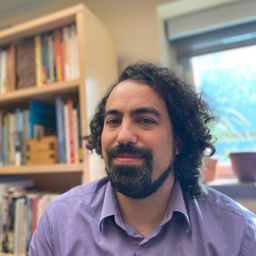
Dr Milan Balaban
Milan Balaban was born on 03.07.1981, in Banja Luka, Bosnia and Herzegovina. He finished his bachelor studies at University of Banja Luka and his master and doctoral studies at the Masaryk University in Czech Republic, where he defended his dissertation project with the topic” Yugoslav-Czechoslovak Economic Relations between 1918-1938 year”. He had worked at Department of History in Banja Luka and since 2015 has worked as scientific researcher-historian at the Bata Information Centre at Tomas Bata University in Zlin, Czech Republic. His main research areas are history of the Bata Company and Czechoslovak-Yugoslav economic relations. M. Balaban is author of numerous articles published in Czech and foreign scientific journals and he recently published monograph: The Bata Company in Yugoslavia (Zlín 2018, ISBN: 978-80-7454-800-0).
Elementy, w których Dr Milan Balaban uczestniczy
czwartek 1 wrzesień, 2022
The Bata Company, which evolved from a small workshop in Zlin in the former Austro-Hungarian Empire, today being part of the Czech Republic, at the end of the 19th century, became one of the best-known largest shoe producers in the world in the second half of the twentieth century. The company was not characterised by the unique organisational structure and implementation of disruptive innovations only. Also, it is connected with significant investments in the social life of its employees....
The Bata Company, which evolved from a small workshop in Zlin in the former Austro-Hungarian Empire, today being part of the Czech Republic, at the end of the 19th century, became one of the best-known largest shoe producers in the world in the second half of the twentieth century. The company was not characterised by the unique organisational structure and implementation of disruptive innovations only. Also, it is connected with significant investments in the social life of its employees....
Elementy, w których Dr Milan Balaban attends
niedziela 28 sierpień, 2022
Join the conference organisers and TICCIH board members for a welcome cocktail and some festive words of introduction, in the former forge of the École technique de Montréal, founded in 1909, now part of the Université du Québec à Montréal campus.
wtorek 30 sierpień, 2022
Efforts to preserve industrial heritage occurs in a socio-economic and political context. But what is being preserved and for whom? And, relatedly, what is the relationship between industrial heritage sites and the deindustrialized working-class communities that often adjoin them? The keynote will consider the ways that the preservation of Montreal’s Lachine Canal, Canada’s premier industrial heritage site, has enabled gentrification processes that have forc...
środa 31 sierpień, 2022
Visit of the permanent exhibition : À cœur de jour, grandeurs et misères d'un quartier populaire, which traces the history of one of the oldest industrial and working-class neighborhoods in Montreal. Discovery of the old Généreux bathhouse, a building that recalls a time when most working-class dwellings had neither bath nor shower. Presentation of some elements of the neighborhood's heritage on the way between UQAM and the Écomusée.The visit will be guided in French by René Binette...
In this lecture, I would like to talk about deindustrialised communities, heritage and memory in the context of right-wing populism. Drawing on studies of memory and heritage, I argue that right-wing populists have cornered the market on talking about the past of deindustrialised communities. They have successfully misrepresented this rich and complex history to fuel rage, resentment, fear and reactionary nostalgia. Indeed, ‘the past’, and in particular the industr...
czwartek 1 wrzesień, 2022
The use of industrial heritage is a profoundly important factor in the process of creating a sustainable economic, social, and political future for many communities occupying industrial heritage landscapes. More than ever we recognize the need for such communities to be capable of shaping and expressing their heritage in different forms in the context of current events and issues, and in doing so to inform both contemporary decision-making as well as the way their industrial heritage is re...
This lecture will argue that the landscapes of industrial heritage that can be found in different parts of the world are directly related to the place-specific trajectories of deindustrialization. In other words: the different ways in which deindustrialization impacts on local communities has a direct bearing on the emergence of forms of industrial heritage. I will differentialte between deindustrialization paths and related industrial heritage regimes in a) Anglo-...
piątek 2 wrzesień, 2022
Walkers will meet at the entrance (there is only one) of Lionel Groulx Metro and from there walk along the canal to the St-Gabriel Locks. This was once the most heavily industrialized area in Canada. It is now a zone of affluence between the hardscrabble, but now gentrifying, Point Saint-Charles, historically Irish and French, and Little Burgundy, one of Montreal's first multi-racial neighbourhoods. Several former factories were converted into condominiums in the...
In the refusal of people in communities abandoned by industrial capital to abandon their own places, we can read an implicit critique of the mobility and unaccountability of capital, raised by those who were once inside (however tenuously or uncomfortably) and now find themselves marginalized, “left behind.” The desire to catch up again, whether through attracting new investment or transvaluing abandoned sites as tourist attractions, makes this an essentially conservative critique that is ...
sobota 3 wrzesień, 2022
Uncover the vestiges of the Canadian Pacifie Railway tracks and the former Angus Shops, which played integral raies in the industrial and residential development of Rosemont. This tour wi/1 give you insight into the industrial past of the neighbourhood and its new life bath as a place to live and to work.A tour designed and guided by Heritage Montreal. Departure at the corner of Rachel and Dézéry streets, 10 minutes walk from Prefontaine metro station











